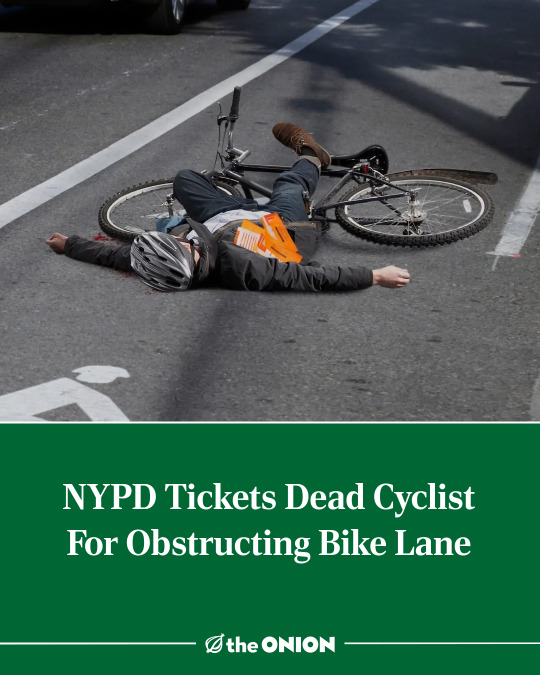#cops
Explore tagged Tumblr posts
Text

The cops knocked at the door and Eva stomped her foot to warn us
104 notes
·
View notes
Text

they could never make me trust cops
#nurses deserve better#also fuck this headline#police#police brutality#fuck the police#fuck the cops#cops#all cops are bad#all cops are bastards#unacceptable#nurses
80K notes
·
View notes
Text
do not discuss your disability or medical conditions or pregnancy with the police. do not tell them your diagnosis. do not let them in your hospital room without a warrant. never talk to the cops. I don’t care if you’re white or cis or middle class or think you have nothing to hide. never ever ever talk to the cops without a lawyer. they will use every detail about your conditions against you and worse
9K notes
·
View notes
Text
Suspect is trying to dance his way out of trouble
528 notes
·
View notes
Text
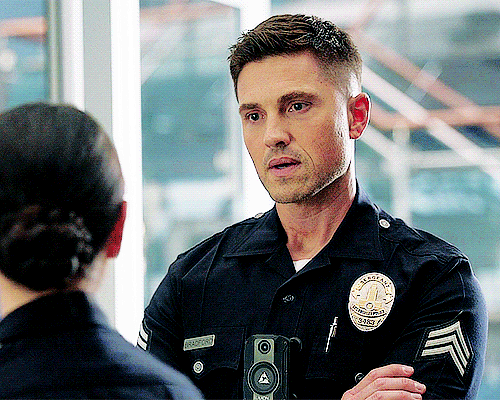
Warnings: none just lots of fluff
Summary: Tim's wife sets up a few pranks for April fools.
April fools day
Tomorrow is April Fools'. A day that Y/N Bradford goes all out for. Last year she deflated one of the tires in Tim's shop and had Jerry put some crickets in the war bags before his boot got them. This year, however, she wants to expand it to their house. While Tim is asleep in their bed, she gets her little pranks ready. First she takes his cuffs off his duty belt and replaces them with fuzzy leopard ones. After that she puts all the clocks in the house forward two hours and changes the time zone on his phone to match.
The next morning Y/N sits up suddenly and wakes up Tim. “Tim, wake up! We’re going to be late!’ She says loudly.
“Huh, what baby?” He says, sitting up, still groggy from sleep.
“Look at the time; we should have been up 2 hours ago,” she says as she watches him check his phone. He throws his shirt off and rushes to get dressed. Y/N goes to the bathroom to pretend to start getting ready.
She comes out and goes into the kitchen to see Tim making coffee. “Is it normally this dark when we get up? And why aren’t you dressed?” he asks, confused.
She smirks and pulls out her phone and shows the lock screen. He sees that the time was two hours behind and the date above it.
“Really, Y/N? You nearly gave me a heart attack with that.” He says slightly annoyed.
“I’m sorry,” she says, giggling as she wraps her arm around his waist and leads him back towards the bedroom.
After she visits with Lucy in the locker room at the station, Y/N goes to the roll call room to wait with Angela and Harper.
“So what pranks you got this year?” Angela asks with a knowing smile. She and Harper know about her little jokes she likes to pull on Tim. She’s been doing it since they were rookies.
“You’re about to see,” she laughs mischievously. A minute later Tim comes in looking embarrassed. He marches up to where the three detectives are sitting.
“Hi, Tim,” his wife says, looking up at him.
“Give me my cuffs, he says annoyed.
“I don’t have them. Maybe Smitty took them,” she says with no emotion. “
"Really, babe; don’t make me file an incident report.” He whines.
“Here," she says, pulling them out of her pants pocket. "Don't lose the other ones," she says with a smirk.
Tim’s face turns red as he goes to his seat next to Nolan.
A few hours later, while Tim is out on patrol with Aaron, Y/N goes and gets a ticket book from Jerry and goes to her desk to write one. She writes it for “unlawful use of good looks.” Once she is done, she goes out to Tim’s truck and puts it in between the windshield wipers.
“You ready?” Tim asks, coming out of the locker room to meet Y/N in the bullpen.
“Yep. You want to get food or make something?" she asks him as he wraps an arm around her shoulders.
"We can get something," he answers.
They walk out of the station and head to Tim’s truck. Tim goes around it to open the passenger side door.
“What is this?” he asks as he picks up a small paper from the windshield.
“I don’t know. What does it say?” Y/N asks him.
“Really, baby?’, he says with disbelief as he reads the ticket she wrote.
“What does “unlawful use of good looks even mean?" He asks, raising an eyebrow.
"It means you're very good-looking", she says while laughing.
"I can't with you," he chuckles as he gets into the driver's seat.
#tim bradford#the rookie#cops#april fools#prankster#tim bradford x y/n#tim bradford imagine#detective#timothy bradford#fluff#tim bradford x reader#eric winter#blurb#tim bradford x wife#tim bradford fluff
463 notes
·
View notes
Text
Everybody done lost their mind
#politics#po#tesla#tesla cybertruck#elongated muskrat#elon musk#donald trump#republicans#maga#2024 presidential election#anti trump#trump administration#stupidity#cops#police state#police#us politics
610 notes
·
View notes
Text

Rehabilitation, not Devastation. Fuck The Police.
#denver#fuck the gop#fuck the police#rioters set fire to town hall & clash with cops as protests rage on across france after macron forced pension reform#tw cops#kill all cops#corrupt cops#all cops are bastards#defund the cops#fuck cops#cops#stop cop city#cop city#copcity#cop#kkkop#kkkops#allcopsarebastards#all cops are bad#all cops#policebastard#atlanta police#corrupt police#police#politas#ausgov#auspol#tasgov#taspol#goodnightwhitepride
34K notes
·
View notes
Text

Andy Lincoln & Jon Bernthal
behind the scenes of the first season of the walking dead, 2010
#andy lincoln#andrew lincoln#jon bernthal#Shane and Rick#Rick grimes#shane walsh#sheriff#sheriffs deputy#sheriffs department#cops#american#the walking dead#twd#robert kirkman#twd s1#the walking dead season 1#cowboy#Cowboy hat#western#western aesthetic#america core#americana#america#small town america#buddies
351 notes
·
View notes
Text

After two weeks of posing as an underage girl online and exchanging messages with a suspected child predator, Detective Sgt. Gordon Aguero of the Harris County Sheriff’s Office told reporters Thursday he had fallen in love with the pedophile he was investigating as part of a sting operation.
Although he was assigned to the case in order to gather evidence against an alleged child abuser, Aguero, 54, admitted he was quickly beguiled by the charming man he contacted through the gaming platform Roblox while purporting to be a teenager named Zoey. The pedophile, identified only by the username Ken1965, reportedly wrote to the detective’s fake account several times a day and often remarked that his intended victim was special and looked pretty.
Full Story
358 notes
·
View notes
Text
Some more advice to the students ❤️🇵🇸

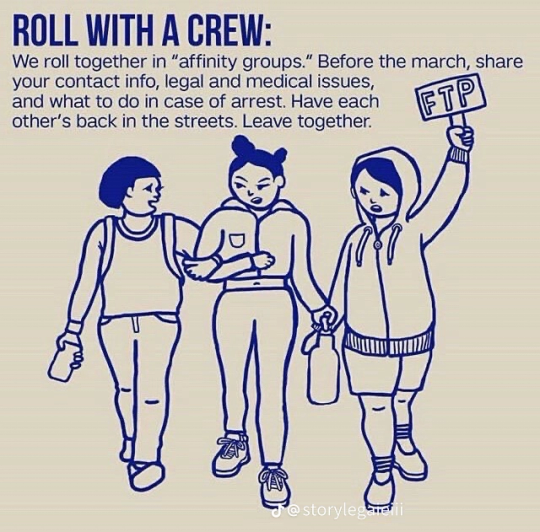
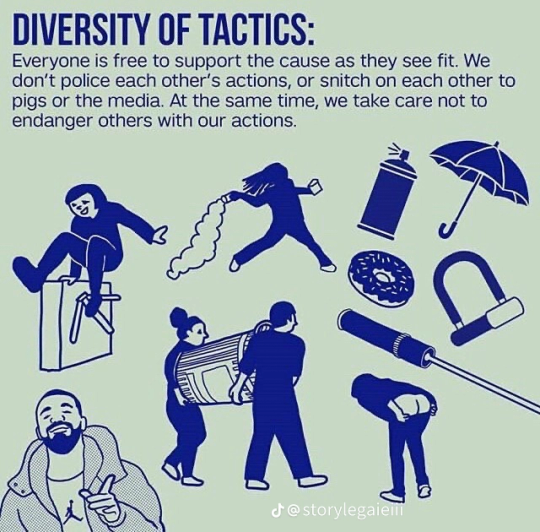
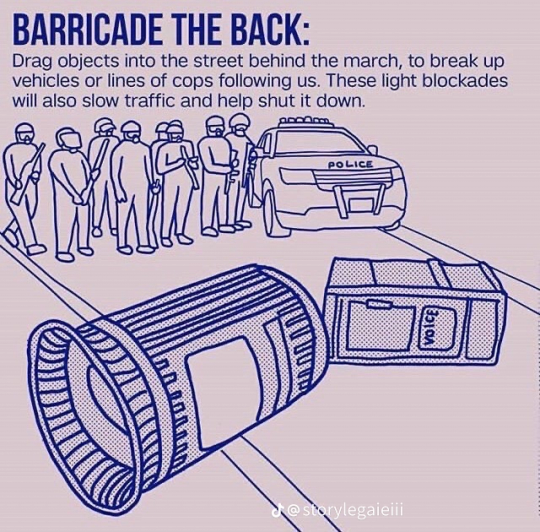
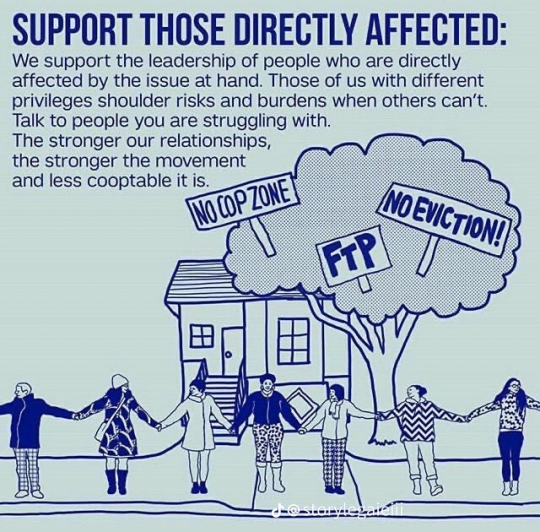

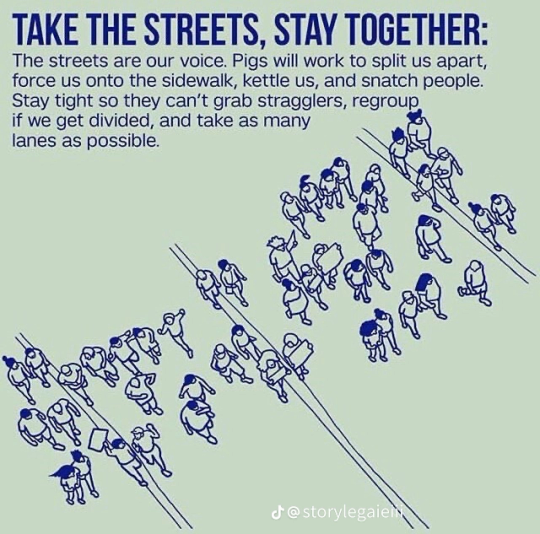
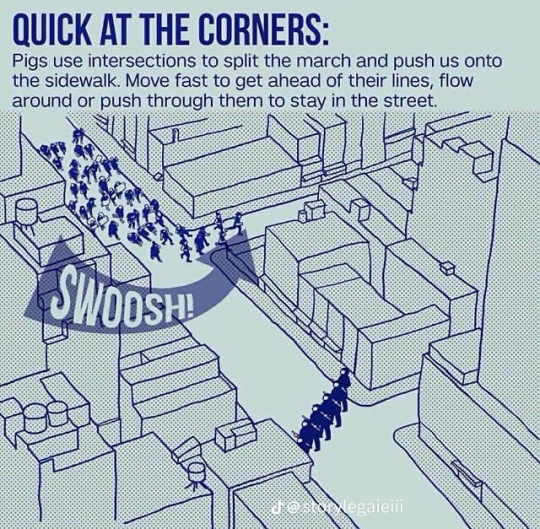
#history#communism#marxism#politics#socialism#current events#student#gaza#gaza solidarity encampment#news#columbia university#protest#preparedness#students#youth#palestine#solidarity#antifascism#acab1312#university#march#intifada#gaza genocide#palestinian genocide#socialist revolution#social justice#cops#defund the police#divestment#boycott israel
2K notes
·
View notes
Text

Quite the photo.
2K notes
·
View notes
Text

Warnings : intruder at elementary school
Summary: You have to respond to a dangerous situation at your kid’s school and some rookies have something not so pleasant to say.
Word Count: 1600ish
Unfortunate visitor from the past
Now you are engaged, and Tim is now a Metro Liaison Sergeant. Both of you keep your personal lives very private, so only Sergeant Grey and Angela know about Jasper.
You and Tim walk into the precinct to the smell of stale coffee and printer ink. The station is filled with the soft shuffling of papers and soft morning chatter amongst the other officers before roll call. You both head to the locker rooms where Tim changes into his uniform, and you get ready with Harper, Lopez, Chen, and Jaurez. You all chat about cases you've been working on and discuss plans for girls night.
"Y/L/N, come see me in my office for a second," Sargeant Grey calls across the bullpen from his office door.
You walk over and step into his glass office. "What can I do for you, sir? you ask politely.
"Officer Wrigley called out sick, and I need someone to train Officer Daniels today. I know you haven't been a T.O. for years, but you're all I got." He explains from behind his desk.
"Don't worry about it; I got it, sir." You say with reassurance.
"Thank you. You're dismissed." He says, and you walk out to change into your patrol uniform.
30 minutes later you're walking into the roll call room. You walk down the aisle and sit next to Nolan.
"Hey Y/N, are you riding patrol today?" He asks, noticing that you're in uniform today.
"Yeah, Grey's got me filing in for Wrigley today." You replied as Sergeant Grey walks up to the podium at the front of the room.
Sergeant Grey then leads roll call, and Tim discusses a suspect that Metro is tracking. His facial expression slightly changes once he notices you’re in uniform, but he remains professional during the briefing.
“Why are you in uniform?” Tim asks in an unamused tone as he walks up to you after Grey dismissed everyone.
“Grey needs me to train Daniels today because Wrigley called out,” you explain to him.
“You haven’t been a T.O. for at least ten years,” he protests. He doesn’t like the idea of you riding patrol, much less with a “toddler with a gun.”
“It’s just for today, Tim; I’ll be ok,“ you say with a reassuring smile while looking up at him.
“Alright, if there are any problems, call me,” he says.
Later that day, while you’re riding with Officer Daniels, you get a call from Tim.
“Hey Tim,” you say once you answer your phone from the holder in the shop.
“Y/N, you need to come back to the station; it’s about Jasper.” He says in a soft but serious tone.
“Why is he ok? Is something wrong?” you ask while your face heats up and your heart starts beating fast.
“We’ll talk when you get here; I love you,” he says calmly.
“I love you too. We’ll be there in 5 minutes,” you reply before ending the call.
"May I ask who Jasper is?" Officer Daniels asks next to you.
“My son,” you reply in a stern voice.
"Is he— " he starts, but you cut him off.
"No more questions, boot," you bark, sounding a little too much like Tim.
You pull into the garage area of the station and park.
“Get the gear squared away, then come find me when you’re done.” You say as you round the front of the shop and stand next to the passenger side to make sure Officer Daniels understands.
“Yes ma’am,” he responds as he starts grabbing the war bags from the back of the shop.
You turn away from the shop and walk through the glass doors and enter the station. With heavy limbs and an anxious feeling, you look around for Tim.You walk into the bullpen and see him in Grey’s office. You take a breath and walk over to the glass door and step in. Tim is sitting in front of Grey in his Metro uniform with his sleeves pushed up.
“What happened? Is he ok?“ you ask in a shaky, uneven tone.
“Sit, Y/N,” Tim says calmly while gesturing to the chair next to him.
Despite wanting to remain standing, you slide into the seat next to Tim.
“We got a call about someone trying to break into Jasper’s school. They’re on lockdown until we can identify the suspect.” Grey says slowly with concern written across his face.
Tim reaches over and holds your hand to provide reassurance.
“Do we know if he’s ok?” You ask, concerned.
“As far as we know, he’s perfectly fine. I sent Metro there on standby.” Tim says in a soft tone.
“Do we have visual on the suspect?” You ask about switching from being a worried mother to a cop.
“Yes, Metro got a shot of him.” Grey says, passing over a tablet.
Your eyes widen as you focus on the man in front of you. You know this man, if you can even call him a man. You never thought you’d see or hear from him again.
“You look like you’ve seen a ghost, Y/N,” Grey says, breaking the silence.
“I know who this is. It’s Jasper’s biological father,“ you exclaim.
“Has he ever tried contacting you before in the past?” Grey asks.
You shake your head. “Nopenever. He said he didn’t want anything to do with him once I told him I was pregnant.” You reply.
Just then Tim’s phone rings.
“Suspect has broken into the building; do you want us to go in after him?” Wells, one of Tim’s buddies from Metro, says on the other side.
Tim looks up to Grey for confirmation, and Grey nods.
“Yes be advised that he is the father of one of the students, “ Tim says to Wells.
You abruptly stand up and head to the door.
Tim immediately gets up after you. "Where are you going?" He asks worriedly.
"To go help," you say.
"No, you're too close to this. I don't want you to do something irrational you'll regret." Sargeant Grey says.
"Then what am I supposed to do? I won't be able to focus on anything else." You exclaim worriedly while messing with your engagement ring.
"Then I will have you sit in a shop out of sight during the operation. Bradford, you can give orders from there." Sergeant Grey compromises reluctantly. He wants to protect his children as much as possible.
Meanwhile...
A couple of the rookies sit in the bullpen doing paperwork with their T. Os are sitting at a nearby table.
"I found out Detective Y/L/N has a son today." Officer Daniels shares with the group.
"She does?" Another rookie named Brooks asks.
"Is it with Bradford?" Another asks.
"Can't be. He was married before Y/L/N." A nearby P2 says.
"Wait, he was?" Brooks exclaims.
"Yeah, to a UC. Got hooked on drugs, though going undercover." The P2 explains.
Just as the P2 finishes their sentence, Tim clears his throat. "Are you idiots done?" He barks at them.
The group looks back at him in shock. They are too stunned to respond to Tim. You stand next to him, just as shocked as they are that someone would talk about a fellow officer like that.
"You all should know better than to talk about another officer's personal business like that, let alone a senior officer." He yells at them.
He looks directly at the P2 standing next to where Officer Brooks is sitting. "You've been a cop longer than them; you should have corrected them. Now if I hear talk like this again, you'll be getting a blue page," Tim says finally.
"Come on, baby, let's go see about Jasper, Tim says to you while putting his arm around your shoulders and leading you to the door to the garage area.
10 minutes later, you and Tim pull up to Jasper's school right as you hear Metro call in a code four. A few ambulances pull up a few minutes later to make sure there aren't any injuries.
Tim steps out of the car and gestures for you to get out after him. He walks over to where Wells is, with you walking closely next to him. His fingers lightly brush against yours as you walk.
“Hi Sir, we didn’t have any casualties, and your son is perfectly safe. Only a few staff members were slightly injured. The suspect is in that shop over there if you would like to question him." Wells explains to both of you.
"Thank you," Tim says before turning to you.
"What do you want to do?" He asks.
"I don't want to talk to his father, but I would like to see Jasper," you say to Tim.
"I'll go talk to the principal and see if you guys can take him now,“ Wells suggests.
"Thank you,” you say.
10 minutes later, Wells brings Jasper out with his things.
"Mom! Dad!" Jasper calls while running straight to you and Tim.
"Hi baby, did you get scared?" You ask while you squat down to hug him.
He lets go of you and moves over to hug Tim.
"I was at first, but I knew you guys would be here to help." He leans against Tim's leg while Tim pats his head.
"Are you ready to go home, buddy?" Tim says while bending down to his level.
"Yeah, I miss Kojo," Jasper says, and Tim and you both giggle.
You watch as Tim holds Jasper's hand as they walk over the shop. You're very proud of Tim for sticking with you and being such a good dad to Jasper when his wasn't around.
443 notes
·
View notes

